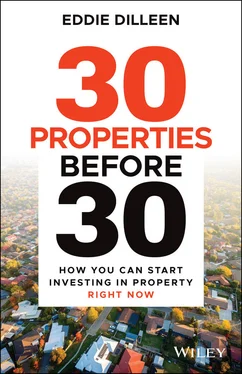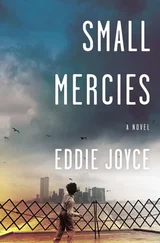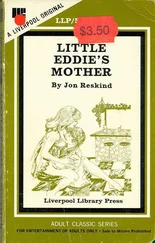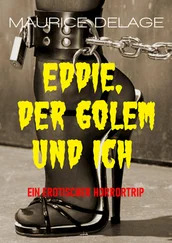Property investment is my passion (along with basketball — go Lakers!). I have dedicated my life to it. I hope this book ignites a fire in your belly and inspires you to begin your journey or adds fuel to the wealth-creation fire you're already tending! My journey has not been easy, but I have learned so much along the way. This book provides all the information and resources you need to create the life you really want.
As you'll already have gathered from my background, I'm not your typical property investor, and perhaps partly for this reason, over the years my story and strategies have been featured by multiple media outlets. Many people have reached out to tell me how my story inspired them. Because if I could do it with my initial disadvantages, they realised, then surely they could too. This feedback always makes my day! So after some consideration I decided to begin this book with a brief account of my own personal story.
My message here is simple: it's to never allow the personal challenges you start out with determine the trajectory of the rest of your life. Whatever your circumstances, your future is not set in stone. Only you have the power to create it.
If you have grown up around motivated people who work hard in a stable job and provide for their family, you are luckier than you might realise. But if not, it's never too late to break the cycle. Resisting societal expectations and peer pressures is not easy, nor is breaking poor cross-generational financial habits. Taking control of your life and educating yourself is the first step.
If you want to dive straight into the nitty-gritty of property investing, feel free to flick to Part II. If you'd like to learn a bit about my upbringing and the journey of acquiring my first ten properties (with all figures and details), then read on.
CHAPTER 1 Breaking the cycle
My parents met in Escondido in southern California and got married in their early twenties. My mum had grown up there, the youngest of three siblings, in an average American lower-middle-class family. There wasn't much money. She finished high school but never went to university. No one in my entire family had been to university. I didn't even know what university was until my teens.
My father grew up in Brooklyn, New York. When he was 17 years old he enlisted in the navy, lying about his age. He was sent to Vietnam, where he was wounded and got a silver star for saving others' lives. Mum told me he had a lot of problems after he came home.
Thirteen years after getting married, they moved from the US to Sydney. My father had big dreams of getting rich through multi-level marketing schemes and various other plans, but they never seemed to work out. Dad was a self-employed welder. Later he worked for a company, but the pay was very low. He always wanted more. At the dinner table he'd say how we should always save 10 per cent of what we earn so we could build up a good amount of savings in 10 years. He really wanted to get ahead financially, but no matter what he tried, he just didn't get there. Even when my parents were together and very poor, Dad faced a massive tax debt when he tried to work on his own.
My parents had three children. I was the youngest, born much later than my sister and brother when Dad was 45 and Mum 41. I remember lots of financial stress — my parents were always fighting about money.
We lived in a rough area in Mount Druitt. For those unfamiliar with it, Mount Druitt is a lower socioeconomic suburb an hour's drive west of the CBD that has long held a reputation for crime, drugs and domestic violence. But it was affordable and my parents were able to buy a house there in the late 1980s for $50 000 and settled into their new life. We lived right next to the shops in the neighbourhood of Whalan. I recall how we were forbidden even to pick up the mail because drug syringes often littered the ground.
My parents split up when I was eight. My father moved to Adelaide and my mum, sister and I moved to Austin, Texas, where Mum's sister lived. My brother stayed in Australia. We arrived in the US with just $300.
The family home was sold for $80 000. That house is now worth more than $500 000. If they hadn't sold it, our lives could have turned out very differently.
In Austin, Mum got a job as a secretary for an airline. We lived in an ugly two-bedroom unit in another very rough area. My sister had one bedroom and Mum and I shared the other, but we only had one bed in there so Mum would sleep on a pull-out couch. When I would ask for a toy, I was told no, we had to put food on the table.
We didn't have a car at first, so for about six months we had to walk miles to the store and back carrying all our groceries. People would yell out at us through their car windows. When I look back now, it's amusing, but at the time it caused a lot of pain for me. To help Mum, I'd take out the neighbours' rubbish for a dollar or two. I thought that was great!
When I was 12 we returned to Sydney. After the September 11 terror attacks, Mum feared for our safety, especially as she still worked for an airline. We landed in Sydney, and once again Mum had only a few hundred dollars and no job, house or assets. A local church allowed us to stay in a church-owned house until she pulled together enough money to rent our own place. But for a single mum in her mid-fifties, finding work was tough and she had to support us on a modest pension. After a long wait, we were finally approved for a housing commission house in Willmot, another suburb of Mount Druitt.
I still remember seeing the house for the first time. I wasn't expecting a palace, but this place was truly awful. There was a scrawl of graffiti on the back wall, the carpets were old and worn, and a distinct smell of mould permeated the place. Everything was in a sorry state of disrepair. The thought of calling this home filled me with despair. I remember begging Mum not to make us live there, but with private rentals in the area averaging more than $250 a week we had no choice. Mum's pension was only $180 a week. At $65 a week, this subsidised place was all we could afford.
Willmot was rough. There were ‘domestic disturbances’ every other night. Police cars regularly patrolled the streets and helicopters buzzed overhead. When I was 14, four houses near us were fire-bombed within about six months. It was scary. In our neighbourhood of mostly commission houses, people would move in and out, or the houses would stand vacant. Most tenants were unemployed and dirt poor. Many used drugs and some would go out, get petrol and just burn the places down. One family on our street had seven kids, none of whom went to school. They just roamed the street terrorising people.
I remember one evening very clearly. Mum and I hadn't realised the house across the street from us had been standing empty. We got home, had dinner and watched TV — normal stuff. At about 7.30 we started seeing light reflecting on the TV, and soon after there was a really strong smell of smoke. We didn't know what was happening, but in the back of my mind I thought, someone's torched a house or blown up a car . (When people in our suburb put out hard rubbish, someone would usually come along and set it alight). Six fire trucks came, the police were called and the entire street was lit up.
The next morning, in the light of day, people were still milling around and carrying on. The house was basically reduced to a pile of charcoal. The police had taped it off. Smoke still hung in the air. I think it stayed like that for about six months until the land was sold to a private investor, who built a rental property on it.
Our house was broken into a few times. When we first moved in, there was no front fence, so people would walk up and just take the furniture off the front porch. Then one night while we were sleeping they broke in and took stuff from the lounge. We only discovered the theft the next morning when we found the window open and stuff missing. Mum's jewellery probably wasn't worth much, but they took it anyway. Of course we had no insurance to replace anything. Thankfully they didn't take any substantial furniture, and we had one of those big old TVs that were hard to carry so they left that too.
Читать дальше












